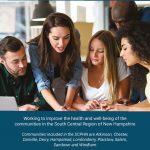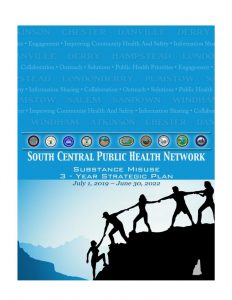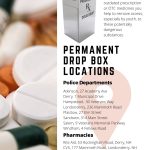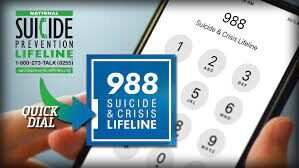Earth Day 2018: End Plastic Pollution
Earth Day is a global event occurring on April 22 of each year. With more than one billion people from 192 countries getting involved, Earth Day is the largest civic-focused day of action in the world (https://www.earthday.org/earthday). The Earth Day Network announced that the focus for Earth Day 2018 will be to End Plastic Pollution.
For many years, we have enjoyed the convenience of using plastics, but may not have been aware of the dangers to the ecosystem and our health. Air pollution, land pollution, and water pollution all impact the ecosystem and can directly and indirectly affect our health. Burning plastic releases chemicals into the air, causing air pollution and affecting the air we breathe. Breathing in too much of this polluted air can cause respiratory ailments. When plastics are dumped into landfills, they not only take up space, but degrade, which also releases chemicals. These chemicals seep into the soil, affecting the soil’s ability to sustain plant life and produce food. These chemicals can also flow into the groundwater, tainting the water that we drink.
Many of us have been to the beach and have seen another form of water pollution. Those random items you see in the sand or floating in the ocean impact the ecosystem. Plastics in the water can harm sea life by entangling them, choking them, or causing other health problems after ingesting. The sea life that consumes these plastics could be the one on your dinner plate. Now those plastic items you see bobbing up and down in the water may not look so innocent. They could be affecting your food, drinking water, and your health.

Garrett Simonsen, South Central NH Medical Reserve Corps Volunteer is dedicated to keeping the beach in his community clean. These are just some of the items he found while doing his part to remove plastics from our oceans.
How big is your Plastic Footprint? A Plastic Footprint is a way of measuring how much plastic you contribute to the worldwide trash pile. Reducing your plastic footprint benefits the ecosystem and decreases health risks for you, your family, and community. The Earth Day Network recommends taking five actions to reduce your plastic pollution footprint: Reduce, Refuse, Reuse, Recycle, and Remove!
REDUCE: Limit your use of plastics! Instead of buying bottled water, try a water filtering system. If you forgot to bring your reusable bags to the grocery store, ask for paper bags and try to buy in bulk. Consider bringing your own clean thermos to the coffee shop for that caffeine fix.
REFUSE: Go without a drinking straw when dining out (you could bring your own paper or reusable straw). Refuse the plastic bag from retail stores – bring your own or consolidate when making many purchases at the mall.
REUSE: Purchase items that can be used multiple times. Consider purchasing a reusable water bottle, thermos, canvas shopping bags, and glass food-storage containers.
RECYCLE: Place recycled items in a recycle bin and not the trash – if bins are not available, consider holding on to recyclable item until you find a bin. Follow your town’s rules on curbside recycling. Encourage your workplace to recycle.

Parkland Medical Center was awarded the Partner Recognition Award in Environmental Excellence from Practice Greenhealth. Parkland diverts 32% of total waste to recycling and promotes green practices throughout the hospital.
REMOVE: Keep your community clean! Join others in your area to remove litter from parks, beaches, schoolyards, and along the sides of roads when safe to do so! (Use gloves and pay attention to dangerous objects.)
By taking small steps today, you can reduce the size of your Plastic Footprint tomorrow!
To learn more about Earth Day initiatives and other ecosystem topics, go to: https://www.earthday.org, www.niehs.nih.gov/health/topics/agents/air-pollution, www.greenpeace.org/usa/10-genius-tips-reducing-plastic-footprint, www.theworldcounts.com/stories/Pollution-from-Plastic











